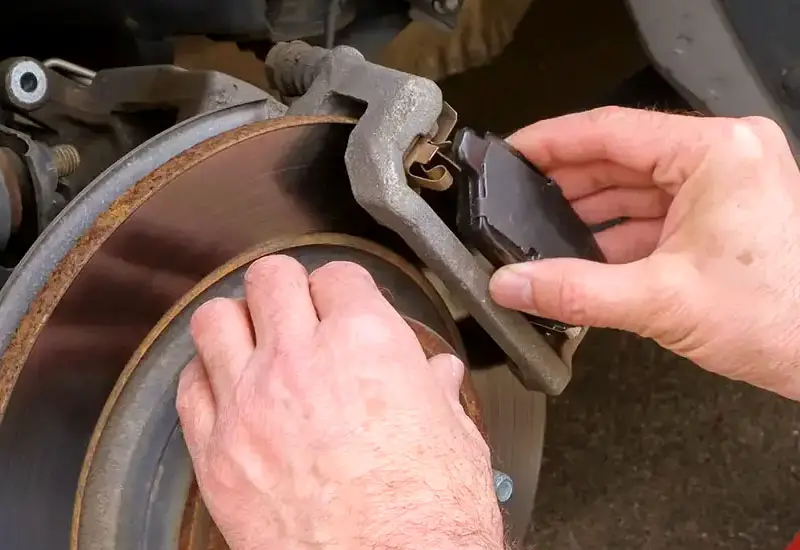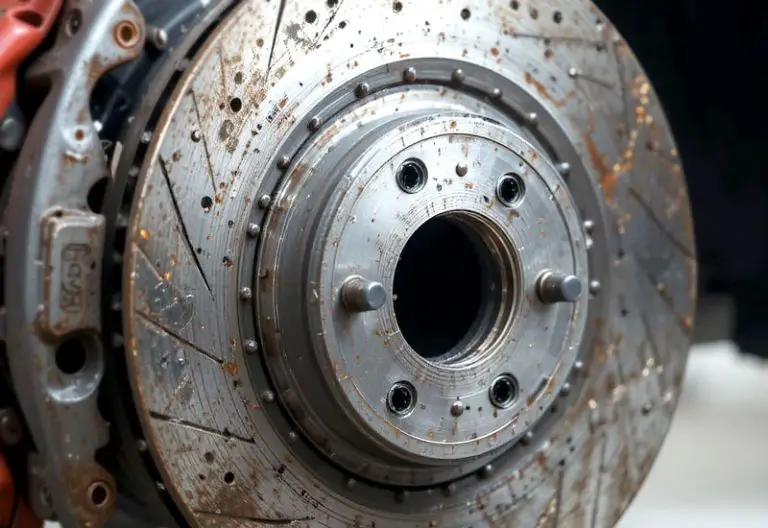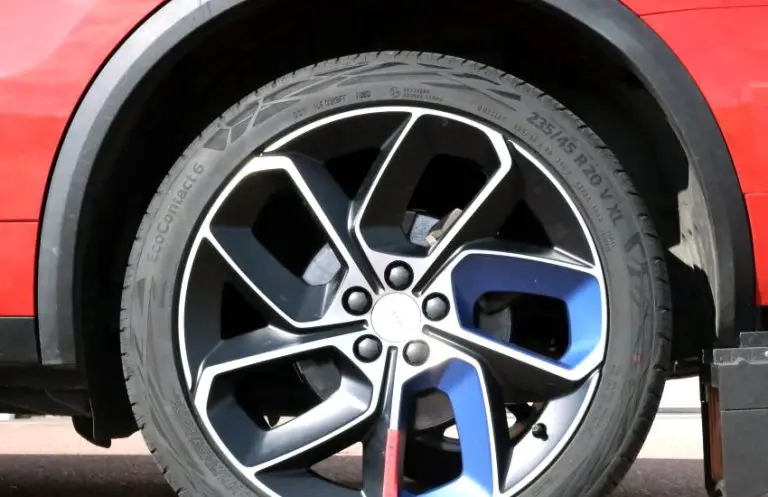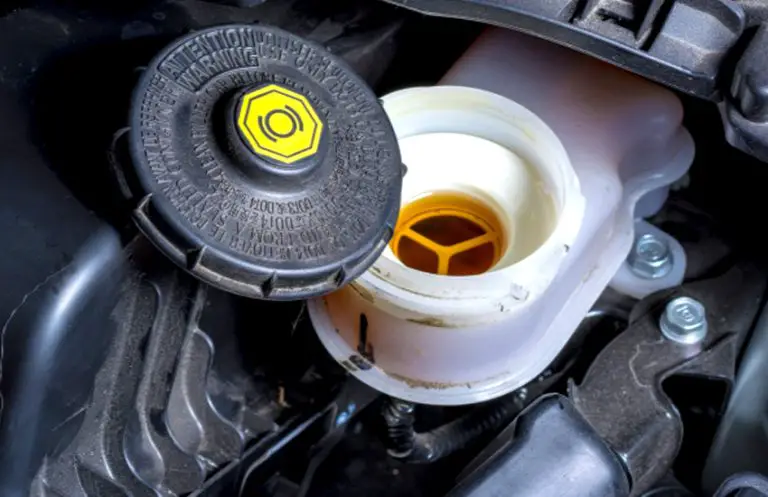Ever wondered if your brake pads should fit loosely? It’s a question many drivers don’t think about, but it could make a big difference to your safety and car performance. While it might sound odd, the way brake pads fit is super important. If they’re too tight or too loose, it could affect how well your brakes work. In this post, we’ll break down what you really need to know about brake pad fit, why it matters, and what might happen if they don’t fit just right. So, let’s dive in and clear up the confusion!

Understanding Brake Pads and Their Role
To answer whether brake pads should fit loosely, it’s essential first to understand what brake pads are and their role in your vehicle’s braking system. Brake pads are an integral part of your car’s disc brakes, which are designed to stop the vehicle when you press the brake pedal. Brake pads are typically made of a friction material (such as composite, organic, or semi-metallic) that works in conjunction with the brake rotor to generate the necessary friction to slow and stop the car.
When you press the brake pedal, the brake caliper pushes the brake pads against the spinning brake rotor. The friction between the brake pads and the rotor slows the rotor’s rotation, ultimately bringing your vehicle to a halt. This process generates a significant amount of heat, which the brake pads are designed to withstand. Over time, however, brake pads wear down due to this friction.
The fit of the brake pads is crucial because if they don’t fit properly in the caliper, they may cause performance issues. A brake pad that fits too loosely could create gaps that affect braking efficiency, while a pad that is too tight could lead to uneven wear and potential damage to other components of the braking system.
What Happens if Brake Pads Are Too Loose?
Now, let’s explore the potential issues caused by brake pads that fit too loosely. A loose fit can affect the performance of your vehicle’s braking system in several significant ways. When brake pads are not securely positioned in the caliper, several issues can arise.
1. Uneven Wear and Reduced Lifespan
When brake pads fit loosely, they can move around within the caliper. This movement leads to uneven pressure being applied to the brake pads during braking. As a result, one part of the brake pad may wear down faster than the other, leading to uneven wear. This uneven wear reduces the lifespan of your brake pads and may force you to replace them more frequently, which can be costly over time.
2. Increased Vibrations and Noise
Loose brake pads are more likely to cause vibrations and noise when you brake. As the brake pads move around inside the caliper, they may create a rattling or squealing sound, which can be irritating. In addition to the noise, the vibrations can affect the overall smoothness of your braking experience, making the car feel less stable during braking.
3. Decreased Braking Efficiency
When brake pads are loose, they may not apply the correct amount of pressure to the brake rotor during braking. This lack of pressure leads to reduced friction, meaning the braking force is less effective. The result is a longer stopping distance, which could be dangerous, especially in emergency situations. In extreme cases, loose brake pads may even fail to engage properly with the rotor, making it harder to stop the vehicle altogether.
4. Potential for Brake Pad Detachment
In severe cases, if the brake pads are too loose, there is a risk that they could detach from the caliper entirely. While this is a rare occurrence, it’s a possibility that can lead to complete brake failure. When the brake pad becomes detached, the car would lose the ability to generate the necessary friction to stop the vehicle, posing a serious safety hazard.
5. Damage to Brake Components
Loose brake pads can also cause damage to other brake components, such as the calipers, rotors, or brake lines. As the pads move around, they may rub against parts of the caliper or rotor that they should not be in contact with. This friction can lead to scoring or other damage to the rotor, causing further issues down the line. Additionally, the excessive movement can cause the caliper to wear out prematurely, leading to more expensive repairs.
What Happens if Brake Pads Are Too Tight?
On the other end of the spectrum, brake pads that fit too tightly can also cause a range of problems. A brake pad that is too tight may prevent the brake system from functioning optimally. Here’s what can happen if brake pads are installed too tightly:
1. Increased Friction and Heat
When brake pads are too tight against the rotor, it increases friction beyond what is necessary for effective braking. This added friction generates more heat than the system is designed to handle, which can cause the brake pads and rotors to overheat. Overheated brake pads can become glazed, reducing their effectiveness and causing the vehicle to experience brake fade, where the brakes lose their ability to stop the car effectively. The increased heat can also cause premature wear of both the brake pads and rotors, requiring more frequent replacements.
2. Brake Drag
If the brake pads are too tight, they may not allow the rotor to move freely. This results in brake drag, where the pads are constantly in contact with the rotor, even when the brake pedal is not pressed. Brake drag causes unnecessary friction, which can reduce fuel efficiency and cause excessive wear on the brake pads. Over time, brake drag can also lead to a decrease in overall braking performance and increased maintenance costs.
3. Increased Wear on Brake Components
Tight brake pads can lead to excessive wear on other components of the braking system. The increased friction from overly tight pads can wear down the rotor faster than normal, leading to costly repairs or replacements. The constant pressure from the tight pads can also cause strain on the caliper and other parts of the braking system, potentially leading to premature failure of these components.
4. Uneven Brake Pad Wear
While loose brake pads can cause uneven wear, so can overly tight pads. When brake pads are too tight, they may not make full contact with the rotor across their entire surface. This can cause certain areas of the brake pad to wear down faster than others, leading to uneven brake pad wear. This uneven wear can reduce the effectiveness of the braking system and result in the need for early replacement of the brake pads.
5. Difficulty in Pad Replacement
Brake pads that are too tight can also make future brake pad replacement more difficult. The excessive pressure from the tight fit may cause the pads to become stuck in the caliper, making it hard to remove them when it’s time for replacement. This can result in frustration for mechanics and higher labor costs when replacing the brake pads.
How to Ensure Proper Brake Pad Fit
Now that we know the issues that can arise from both loose and tight brake pads, it’s essential to understand how to ensure a proper fit. Proper brake pad fit involves selecting the right pads for your vehicle and installing them correctly.
1. Choose the Right Brake Pads
The first step in ensuring the right fit is choosing the correct brake pads for your vehicle. Different vehicles require different types of brake pads, and using the wrong type can cause improper fitment. Always consult your vehicle’s manual or a professional mechanic to ensure you select brake pads that are compatible with your car’s make and model.
2. Proper Brake Pad Installation
Proper installation is crucial to ensure that the brake pads fit securely within the caliper. Brake pads must be installed according to the manufacturer’s instructions to ensure they sit correctly within the caliper and make proper contact with the rotor. If you’re unsure about the installation process, it’s always best to have a professional mechanic perform the job to guarantee the pads are fitted properly.
3. Regular Inspection and Maintenance
It’s important to regularly inspect your brake pads for signs of wear and tear. As your brake pads wear down, they may become loose or cause other issues. Regular maintenance and inspections can help you catch these problems early and prevent costly repairs or safety hazards. If you notice any unusual noises or changes in braking performance, it’s a good idea to have your brake pads inspected immediately.
4. Use High-Quality Parts
Using high-quality brake pads and components can help ensure a proper fit and optimal performance. Cheap or low-quality parts may not fit as precisely, leading to issues with the brake system. Investing in quality parts can improve the overall safety and performance of your vehicle’s braking system.
I hope this article has given you a better understanding of whether brake pads should fit loosely. Brake pad fit is a crucial aspect of your vehicle’s braking system, and whether they fit too tightly or too loosely, it can impact your safety and your car’s performance. Ensuring the correct fit through proper selection, installation, and regular maintenance can help keep your brakes in top condition and your vehicle running smoothly.
Are These Questions in Your Mind?
Is it dangerous to have loose brake pads?
Yes, loose brake pads can significantly affect the performance of your vehicle’s braking system and may lead to unsafe driving conditions.
Can loose brake pads cause brake failure?
In severe cases, loose brake pads can detach from the caliper, leading to brake failure.
Do I need to replace my brake pads if they are loose?
If your brake pads are loose, it’s best to replace them to ensure proper braking performance and safety.
Is it okay for brake pads to move slightly?
A small amount of movement is normal, but if the pads move too much, they can cause damage and affect performance.
Can tight brake pads lead to overheating?
Yes, tight brake pads can create excessive friction, causing overheating and potential brake fade.
Do I need to consult a mechanic for brake pad fit issues?
If you notice any issues with brake pad fit, it’s best to consult a mechanic to ensure your brakes are functioning properly.
Is it possible to fix loose brake pads yourself?
If you are experienced with brake maintenance, you may be able to fix loose brake pads yourself. Otherwise, it’s best to seek professional help.
Can I drive with loose brake pads?
Driving with loose brake pads is not recommended, as it can compromise your safety and the effectiveness of your braking system.
Do I need to check my brake pads regularly?
Yes, regular inspection of your brake pads is essential for maintaining their proper fit and ensuring safe braking performance.
Is it better to replace brake pads early or wait until they are worn out?
It’s generally better to replace brake pads early to avoid potential safety issues and ensure optimal braking performance.


